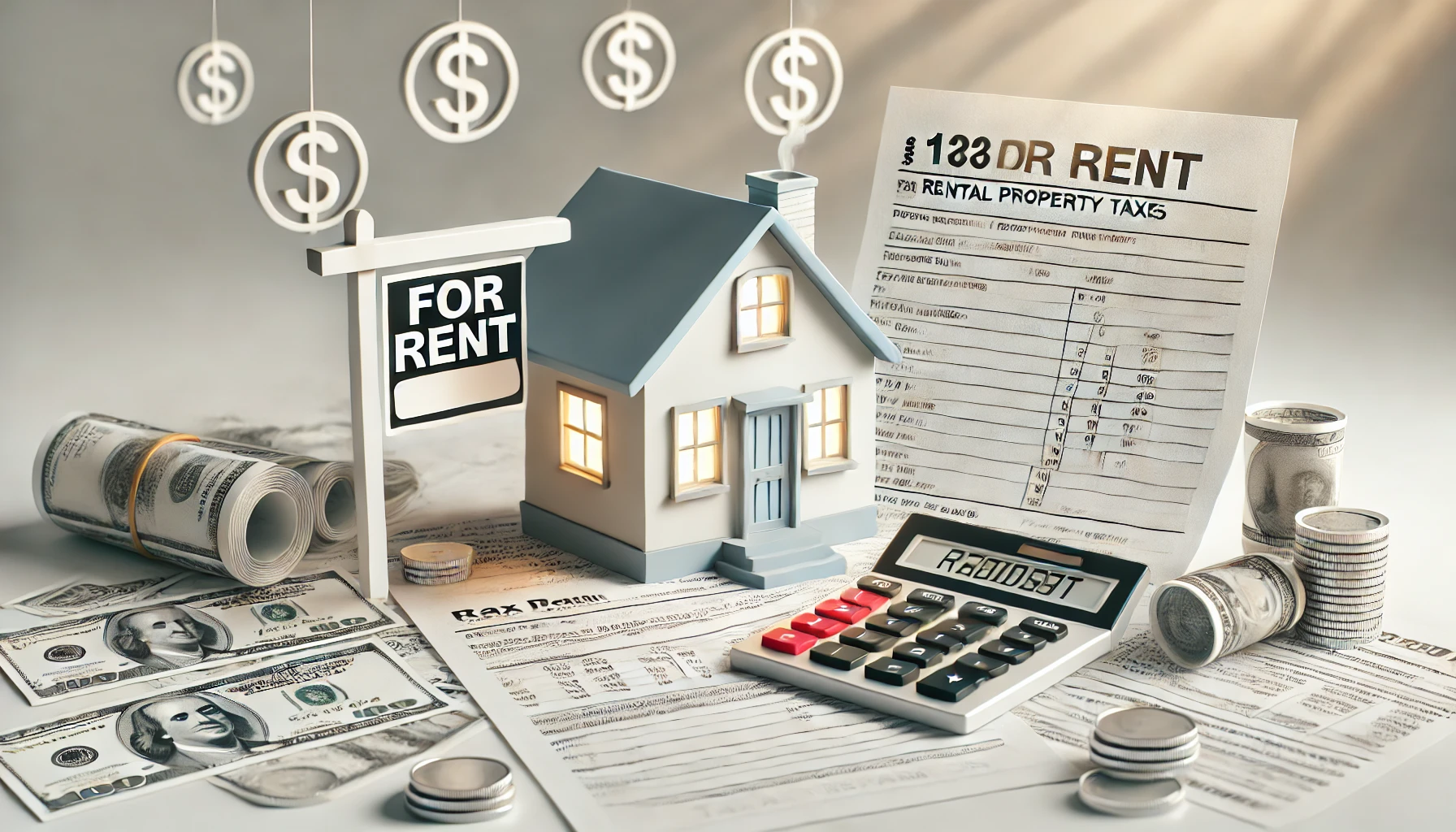Owning rental property can be a great source of income, but it also comes with tax obligations that landlords need to be aware of. Understanding the tax implications of rental properties can help you maximize your deductions, avoid common pitfalls, and ensure you’re following the latest regulations. Here’s an overview of what landlords need to know about rental property taxes to make informed financial decisions and optimize their tax benefits.
1. Rental Income is Taxable
First and foremost, it’s important to understand that rental income is taxable. Any rent payments you receive from tenants must be reported on your annual tax return. This includes advance rent, security deposits (if kept as payment for damages), and any other payments received related to the property, such as pet fees or lease cancellation fees.
- Tip: Keep detailed records of all payments received throughout the year to make tax filing easier and ensure you accurately report your income.
2. Deductible Expenses for Rental Properties
The good news is that as a landlord, you can deduct many expenses related to managing and maintaining your rental property. These deductions can reduce your taxable income, resulting in lower taxes. Here are some common deductible expenses:
- Mortgage Interest: Interest paid on your rental property mortgage is deductible, often one of the largest deductions for landlords.
- Property Taxes: Property taxes paid on your rental property can also be deducted.
- Insurance Premiums: Landlord insurance, including fire, theft, and flood insurance, can be deducted as a necessary expense.
- Repairs and Maintenance: Costs associated with maintaining and repairing the property, such as fixing plumbing, painting, or replacing appliances, are deductible.
- Utilities: If you cover utility costs like electricity, water, or gas for your tenants, you can deduct these expenses.
- Property Management Fees: If you hire a property management company, their fees are deductible as a business expense.
- Travel and Mileage: If you need to travel for property management purposes, including trips to the property for repairs or meetings with tenants, you can deduct travel expenses, including mileage, as long as they are properly documented.
- Tip: Keep all receipts and records for these expenses. Maintaining organized records will make it easier to claim deductions and defend them in case of an audit.
3. Depreciation Deductions
One of the most valuable tax benefits for landlords is the ability to depreciate their rental property. Depreciation allows you to deduct the cost of the property over its useful life, which the IRS defines as 27.5 years for residential rental properties.
- How It Works: Each year, you can deduct a portion of the property’s cost (excluding the value of the land) as a depreciation expense. This helps offset the income generated by the property and lowers your overall tax liability.
- Tip: Consult a tax professional to ensure that you’re calculating depreciation correctly and maximizing this benefit.
4. Capital Gains Tax on Rental Property Sales
If you decide to sell your rental property, any profit from the sale (capital gains) is subject to capital gains tax. However, there are ways to minimize the tax impact, particularly if you’ve owned the property for more than a year, in which case long-term capital gains tax rates apply.
- 1031 Exchange: A common strategy for deferring capital gains tax is using a 1031 exchange. This allows you to reinvest the proceeds from the sale into a similar property and defer the tax on the gain until you sell the new property.
- Tip: If you’re considering selling your rental property, work with a tax advisor to explore ways to minimize or defer capital gains taxes.
5. Tracking Changes in Tax Regulations
Tax laws and regulations regarding rental properties can change from year to year, so it’s essential to stay informed about the latest updates. Recent changes in tax policy may affect deductions, depreciation rules, or the overall tax burden for landlords.
- Key Changes to Watch: Changes in mortgage interest deduction limits, new guidelines for deducting repairs versus improvements, or modifications to the 1031 exchange process could all impact how you handle rental property taxes.
- Tip: Regularly consult with a tax professional or accountant who specializes in rental property taxes to ensure you’re up-to-date on the latest regulations and opportunities for deductions.
6. Filing Tips for Landlords
When it’s time to file your taxes, following these tips can help ensure a smooth process:
- Use Tax Software: Many tax preparation programs are equipped to handle rental property income and expenses, making it easier to file accurately.
- Keep Accurate Records: Meticulous record-keeping throughout the year is crucial. Use spreadsheets, apps, or property management software to track income and expenses.
- Get Professional Help: If you’re uncertain about any aspect of rental property taxes, consider working with a certified tax professional. They can help you navigate complex tax situations and ensure you’re taking advantage of all available deductions.
Conclusion
Navigating rental property taxes doesn’t have to be overwhelming. By understanding which expenses are deductible, taking advantage of depreciation, and staying informed about tax law changes, landlords can optimize their tax benefits and ensure compliance. Proper planning and professional advice can make a significant difference when it comes to filing taxes and maximizing returns on your rental property.

